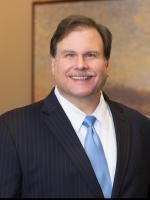Last week, in Smith v. Rite Aid Corporation, 2018 WL 5828693 (W.D.N.Y. Nov. 7, 2018), a court rejected the argument – supported by previous cases – that pharmacy prescription reminder calls categorically come within the TCPA’s statutory emergency purposes exception. This decision creates uncertainty for all pharmacies and may chill their ability to provide important health care notifications to their patients.
In Smith, a Rite Aid pharmacy made a number of prerecorded calls to alert a patient to the status of her prescriptions, but the calls erroneously went to the plaintiff, a third party. (The opinion suggests that either the patient’s phone number had been reassigned to the plaintiff or that Rite Aid had mis-transcribed the patient’s phone number.) The plaintiff claimed to have received multiple calls per week and even per day on her cell phone without her consent. She claimed that the calls caused her “severe emotional distress,” but did not allege that she ever notified Rite Aid that she was receiving the calls by mistake. Slip Op. 5. Rite Aid moved to dismiss her complaint, arguing that the calls were exempted from TCPA liability under both the FCC’s 2015 exemption for certain exigent health care calls and the TCPA’s statutory exception for calls made for emergency purposes.
The court dismissed Rite Aid’s reliance on the FCC’s 2015 exemption. While the 2015 exemption covers certain “calls for which there is an exigency that have a healthcare treatment purpose,” and specifically includes “prescription notifications,” it exempts only one call per day and a maximum of three per week, requires that the calls include an easy means to opt out of future calls, and requires that opt-out requests be honored “immediately.” Slip. Op. 3-4, citing In the Matter of the Rules and Regulations Interpreting the Tel. Consumer Prot. Act of 1991, 30 F.C.C. Rcd. 7961, 8031-32, 2015 WL 4387780, at *49-50 (2015). The plaintiff expressly alleged that she received multiple calls per day and that the calls did not include a means of opting out. Slip. Op. 7. Indeed, the opinion notes that Rite Aid’s counsel conceded at oral argument that the 2015 exemption did not apply. Id. at 5.
The court’s focus on Rite Aid’s inability to satisfy the requirements of the 2015 exemption may have led it to give short shrift to Rite Aid’s emergency purposes defense. In the context of a Rule 12(b)(6) motion to dismiss, where the “face of the complaint” did not indicate—nor could it—that the intended recipient of the calls “would suffer death or serious injury if she did not receive the prescription medication,” the court declined to rule that “prescription notice calls are necessarily shielded from TCPA liability by the emergency purposes exception.” Id. at 7-8. Of course, a “death or serious injury” standard is far higher than the FCC’s broad definition of “emergency purposes,” which the FCC has defined as applying to “calls made necessary in any situation affecting the health and safety of consumers.” See 47 C.F.R. § 64.1200(f)(4) (emphasis added). The court disregarded the broad wording of the “emergency purposes” definition because it viewed the statutory emergency purposes exception as foreclosed by Rite Aid’s failure to satisfy the many specific requirements of the FCC’s 2015 exemption. This, we respectfully submit, was an error.
While the 2015 exemption is a creation of the FCC, the emergency purposes exception was created by Congress and written into the statute. Placing a statutory exception to liability and a regulatory exemption on equal footing, the court reasoned that both “could arguably apply to the subject calls, but the former exception is more general while the latter exception (which specifically refers to ‘prescription notices’) is more specific. Consequently, the more specific provision applies, which means that prescription notice calls must meet the requirements” of the 2015 exemption. Slip. Op. 8-9. In the court’s view, the “more specific” FCC exemption must trump the more general emergency purposes exception or it would have been “superfluous” for the FCC to have included prescription notification calls in the 2015 exemption. Id. at 8-9. But in creating the 2015 exemption, the FCC relied on its authority under Section 227(b)(2)(C) of the TCPA, which allows the FCC to exempt calls to cellphones only if the calls “are not charged to the called party.” 47 U.S.C. § 227(b)(2)(C). Given that the 2015 proceedings would allow an exemption only for calls not charged to the called party, the FCC could not have intended to interpret the emergency purposes exception of Section 227(b)(1)(A)(iii), which has no such requirement.
Moreover, contrary to the court’s view, the FCC has expressly recognized that calls may be protected by the emergency purposes exception even if the calls do not satisfy all the requirements of the 2015 exemption. In a brief filed in the ACA Internationalproceedings, the FCC disputed Rite Aid’s argument that the 2015 exemption was arbitrary and capricious because, among other things, it imposed conditions not contemplated by Congress when Congress created the emergency purposes exception. The FCC argued that to the extent a call fell outside the 2015 exemption but within the emergency purposes exception, “parties can rely on the emergency-purposes exception on a case-by-case basis.” Brief for Respondents at 72, ACA Int’l v. FCC, No. 15-1211, (D.C. Cir., Jan. 15, 2016). The Smith court “interpret[ed] this to mean that a party cannot rely on the emergency purposes exception for calls, such as those in this case, that fit under the [2015] exigent healthcare call exception.” Id. Of course, the odd thing about this statement is that the Smith court held that the calls in this case did not fit under the 2015 exemption. Therefore, by the FCC’s argument, these are just the type of calls that warrant reliance on the emergency purposes exception.
While the court might have reached a different conclusion had the question been presented with a factual context rather than on a motion to dismiss, it is worth pausing to consider the possible implications of the court’s ruling that prescription calls are “emergency purposes” calls only if they satisfy all the requirements of the separate 2105 exemption. Because the 2015 exemption applies only to calls not charged to the called party, is it really the case that prescription calls cannot come within the emergency purposes exception if the patient has a plan with a limited number of minutes or texts, regardless of how dire the patient’s medical circumstances or how critical it may be for the patient to stay on her medications? Because the 2015 exemption restricts medical providers to making only one call per day and no more than three calls per week, is it really the case that any prescription notification calls beyond those numbers cannot be emergency purposes calls, regardless of whether there is a medical reason for more frequent calls? Because the 2015 exemption requires that calls be “concise,” generally one minute or less, is it really the case that a longer call would not qualify as an emergency notification, even if the patient’s medical condition required a longer communication? It is likely that the court did not fully consider such scenarios in coming to its ruling.
For pharmacies, the Smith ruling creates new uncertainties, but pharmacies can take some comfort in cases that have recognized that prescription reminder calls are protected by the emergency purposes exception as calls “affecting the health and safety of consumers.” See Roberts v. Medco Health Solutions, Inc., No. 15cv1368, 2016 WL 3997071 at *3 (E.D. Mo. July 26, 2016); Lindenbaum v. CVS Health Corp., No. 1:17-CV-1863, 2018 WL 501307 at *2-3 (N.D. Ohio Jan. 22, 2018).





 />i
/>i

